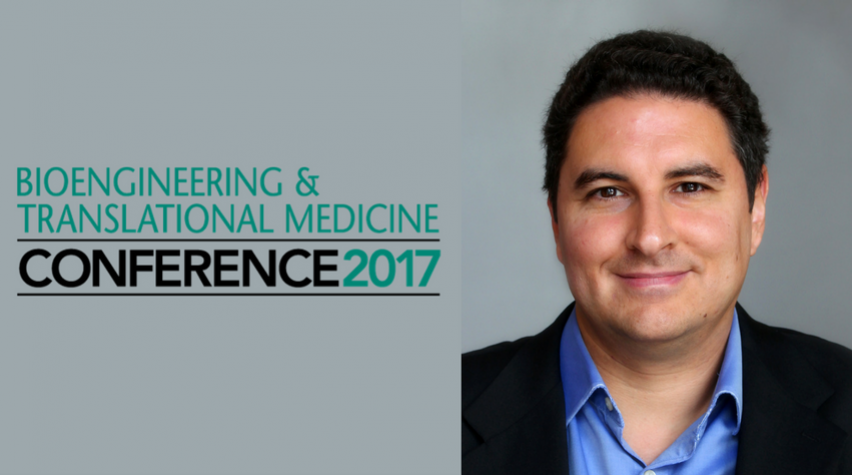
Michael McAlpine is an associate professor of mechanical engineering at University of Minnesota, and a speaker at this year's 2nd Bioengineering & Translational Medicine Conference in Minneapolis, MN. I recently reached out to Michael to learn more about his presentation.
How would you describe translational medicine to a layperson, and why is this area so important?
We are a group focused on 3D printing of functional materials and devices. In that context, translational medicine in my mind means a paradigm shift in medical care, in which health care is literally "translated" from the hospital directly to the patient. One can imagine future trauma situations in which the 3D printer is brought to the patient at the site of the accident, and prints a custom, patient-specific, advanced and multifunctional biomedical device right at the site of the injury. This differs from the current method of delivering the patient to the hospital. We envision delivering the hospital to the patient via our advanced 3D printers.
What specifically will you be talking about at the 2nd Bioengineering & Translational Medicine Conference in Minneapolis?
Our group is focused on what we term "3D printing of functional materials and devices." Our group develops 3D printers that can go beyond commercial 3D printers — which are limited to hard plastics — toward 3D printing an interwoven palette of soft and functional materials, including biological matter. 3D printing is a multi-scale platform, allowing for the incorporation of functional inks, the printing of microscale features, and ultimately the creation of macroscale devices. This three-dimensional blending of functional materials and "living" platforms may enable next-generation 3D-printed bioengineered devices. We will also discuss translating care directly to the patient via 3D printing.
What message would you like the audience to take away from your presentation and the conference?
Our key message is that 3D printers are capable of so much more than printing hard plastics. They should be entirely capable of printing fully functional electronic devices — including semiconducting devices — and interweaving these devices in a seamless three-dimensional manner with cells and tissue. Our message is that these next-generation 3D printers will revolutionize many areas of medicine.
How do you envision translational medicine advancing some of the Grand Challenges in engineering and society (medicine, health informatics, etc.)?
3D printing-based translational medicine is poised to impact and advance in a significant way many of these Grand Challenges. The key enabler for this revolution is understanding that 3D printers are capable of printing functional materials and devices that extend beyond the traditional hard plastics found in commercial printers. Once this palette of functionality is expanded, one can easily imagine printing patient-specific medicines, delivering health care to the point-of-care with a portable 3D printer, and even coupling the computational power of 3D printers and scans of patient anatomy in order to couple patient informatics with on-the-spot delivery of biomedical devices and care rapidly.
Click here to learn more about this event.


